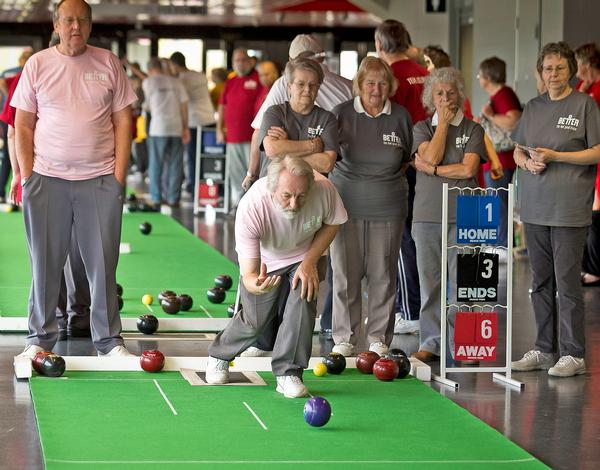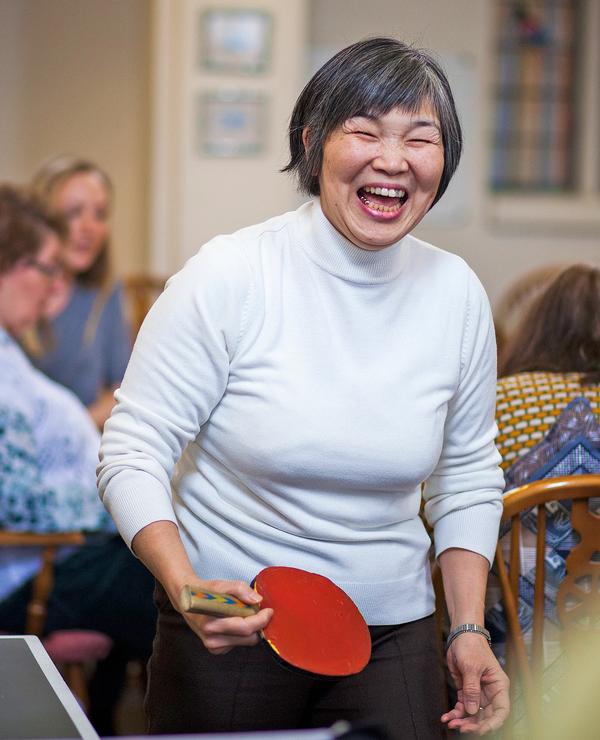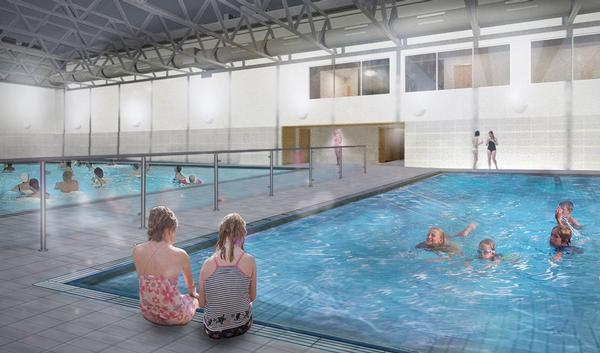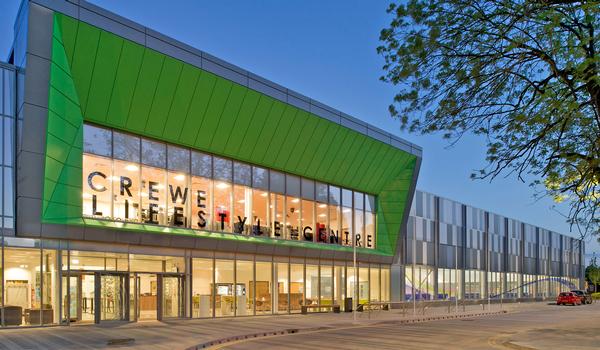|
Leisure Management - Making sports facilities more dementia-friendly

Talking point

|
|
| Making sports facilities more dementia-friendly
|

In our ageing population, dementia is common. It’s important that those with the condition can still reap the physical and mental benefits of sports and activity. Steph Eaves asks the experts how sports facilities can assist
Steph Eaves, Health Club Management and Sports Management
|


How can sports facilities be made more dementia-friendly? © shutterstock/ Robert Kneschke
|
|
|
There are over 850,000 people in the UK and an estimated 46.8 million people globally living with dementia, according to Alzheimer’s Society. These figures are predicted to double every 20 years, with global figures rising to 115.4 million in 2050. And not all of these people are old – in fact, there are over 40,000 people under 65 with dementia in the UK. People with dementia can live for many years, so maintaining an active, healthy lifestyle is crucial for good physical and mental wellbeing. Importantly, recent studies show exercise may improve memory and slow mental decline. If an activity takes place in public facilities or as part of a group, this can also help to reduce feelings of isolation and loneliness. However, as the condition progresses and the world becomes a more confusing place, it can be increasingly difficult for people with dementia to navigate the sports and leisure centres where they could be getting active. It’s important, therefore, for centres to adapt in order to accommodate this group, to ensure people with dementia are not losing out on the benefits of sport and activity that are available to the rest of the community.
|
|
 |

Caitlin Thomas
Corporate Health Manager
GLL
 |
|
In the UK, over 850,000 people are living with dementia – two thirds of whom live at home, rather than in a care home. It’s believed that 22 per cent of those people felt they had to give up activities such as exercise. It’s imperative that the sport and leisure industry takes steps to improve its understanding of dementia, and that facilities, processes and services are adapted to minimise restrictions for people living with this condition.
By understanding how dementia changes people’s needs, the industry can ensure that facilities are inclusive, providing an environment that’s inviting, avoids logistical complexities and offers activities that provide health and social benefits to this group.
At GLL, we feel it’s important to ensure that facilities allow people living with dementia to remain active, not only to delay the onset of their condition, but to avoid neglecting other areas of their health and wellbeing. In order to make our facilities as accessible as possible, we’ve begun to introduce extra assistance such as dementia-friendly signage, additional training for staff and activities such as specially adapted swimming sessions.
GLL was one of the first operators to adopt the dementia swimming programme, which provides sessions under the supervision of staff who have received dementia awareness training. Due to expand in the coming months, these sessions are currently being delivered in public pools in Manchester, Hackney, Tower Hamlets, Barnet, Kensington and Chelsea.
"It’s imperative that the sport and leisure industry takes steps to improve its understanding of dementia, and adapts accordingly"
| |


|

GLL provides activities for people with dementia, led by specially trained staff |
|
|
 |

Emma Bould
Programme Partnership Manager
Alzheimer’s Society
 |
|
It’s important that organisations such as leisure centres and sports clubs support people living with dementia to remain connected to their local area and community.
People with dementia tell Alzheimer’s Society that a huge barrier to keeping active can often be the toilet and changing facilities. Typical symptoms of dementia can include problems with memory and understanding. What may seem like a simple task of remembering which door you came through to a toilet or changing area can be a disorienting and distressing experience for someone living with dementia. Clear signage is, therefore, very important.
We also recommend that sports facilities have designated areas where people with dementia and their carers can get changed together. This is because those in the later stages of the condition may need assistance with getting ready, and having a designated space allows them to do so with dignity.
People with dementia might have difficulty following instructions, so traditional exercise classes can leave them feeling alienated and unable to keep up. We encourage sports facilities to consider how to support people with the condition and their carers in their programming. Supportive classes can ensure that people with dementia maintain that vital link with the community, as well as staying active.
To support their staff in learning more about what it means to have dementia, sports facilities should encourage all customer-facing employees to become Dementia Friends. This is done by participating in an online or face-to-face information session that aims to transform the way people act, think and talk about the condition.
Other things to consider are accessible parking bays and drop off points next to the entrance to minimise walking distances, and visible seating in waiting areas. Alzheimer’s Society recommends that leisure centres and gyms use the Environmental Audit in the Dementia Friendly Business Guide to review their premises.
"Supportive classes can ensure that people with dementia maintain a vital link to the community, as well as staying active"
| |


|

Group activities can be a great way for people living with dementia to stay active and social |
|
|
 |

Locklynne Hall
Business director and former chair, Warrington Dementia Action Alliance
LiveWire
 |
|
LiveWire is currently developing its first dementia-friendly leisure and health facility to support an ageing population in west Warrington. We’re working with the University of Stirling – world leaders in dementia-friendly design – and Walker Simpson Architects to ensure the new Great Sankey Neighbourhood Hub meets the needs of residents in the area.
There are three things to consider when making a facility dementia-friendly: the estate, staff and the services provided.
The layout of the facility must be simple; allowing users to easily find their way around, with toilets located in common areas. The building must feel spacious and have sufficient seating. Quiet areas should also be provided, for use by people who may feel confused or anxious.
Signage must be clear and positioned at eye level – incorporating both symbols and words. People with dementia have difficulty remembering things, so you can’t rely on them building up a familiarity with where everything is.
Colour schemes, including contrasts between walls, floors and doors, must be carefully selected to create a comfortable physical environment for those with dementia. For instance, a pattern on the floor may appear to be a trip hazard, causing someone who has a problem with depth perception or visual processing to stumble or fall. Non-slip and level floor surfaces should also be considered.
Staff should receive specialist training to increase their awareness of the disease and the impact it has on the person and their surrounding network.
There should be specialist activities on offer for both those with dementia and early onset dementia. This could include walking and tai chi. We’re working with our sister organisation, Culture Warrington, to produce an art-based memories project.
"Colour schemes must be carefully selected to create a comfortable physical environment"
| |


|

LiveWire is developing its first dementia-friendly centre |
|
|
 |

Tony Jameson-Allen
Co-founder
Sporting Memories Network
 |
|
While memory loss is often the key challenge for people living with dementia, other symptoms commonly include difficulty processing visual or verbal information, difficulty following complicated instructions, struggling with coordination and motor skills, and changes in personality. Clear, concise instruction along with visual cues can help to address the difficulties that these symptoms present.
Sports and activities should be tailored to people’s strengths. We need to avoid setting people up for failure – sport should help promote feelings of accomplishment and of learning new skills or regaining old ones.
Taking sport and physical activity into accessible, non-sporting venues that older people are comfortable in can be very effective as an initial contact, as not everyone has the confidence to go to a leisure centre or sporting venue initially. Libraries and social club locations are a popular choice.
The Sporting Memories project provides opportunities for people with dementia to participate in community-based, multi-generational weekly sessions. These groups take part in sports such as croquet, table tennis, darts and walking football.
Sports facilities can get involved with Sporting Memories by becoming delivery partners – either linking up with their local group, or hosting one.
"Sport should be tailored to people’s strengths, to promote feelings of accomplishment"
|
|
 |

Richard Jones
General area manager
Everybody Sport and Recreation
 |
|
From the design stage of Crewe Lifestyle Centre, the importance of making the building suitable for all users was clear. It was created to accommodate leisure, libraries, adult daycare and children and family services, bringing a diverse audience through the doors daily.
With the increasing number of people diagnosed with dementia and that number expected to grow, it was important to factor those customers’ needs into the building design. The project team involved dementia specialists and charities to advise throughout the design process and help create a building that would enable those with dementia to access the services with minimal stress.
Colour was a very important consideration in the design. The colour scheme throughout the building was kept neutral and large areas of bold colours were avoided, as they could cause confusion or disorientation. The various types of doors were kept consistent, with blue doors for toilets and yellow for public access. Also avoided were floor finishes that could be perceived as moving, such as blue – a colour associated with water.
Another design decision was to have the open-plan changing village, which allows carers to provide assistance. There are also dedicated ‘changing places’ within the village for those with more specialist needs.
Members of the project team and those now operating the building went through dementia awareness training and are recognised by Alzheimer’s Society as Dementia Friends. This training has been essential to the site’s operation and programming, allowing us to host specialised activities such as dementia swim sessions.
"Dementia awareness training for staff has been essential to the site’s operation and programming"
| |


|

Crew Lifestyle Centre was designed to minimise stress for those with dementia |
|
|
If you have an opinion or new information to add to the debate, send your letters to [email protected]
|
|
 |
| Originally published in Sports Management 2018 issue 1
|
|
 |
|